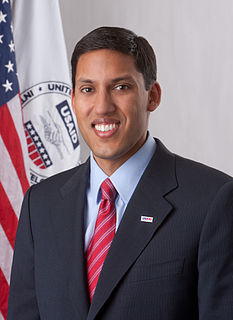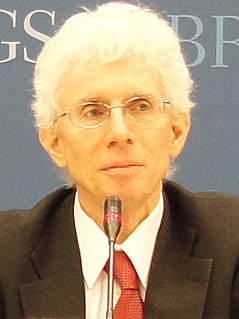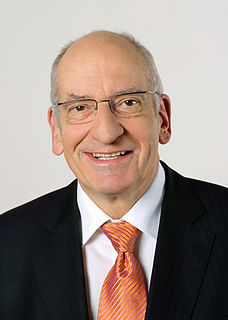A Quote by Thomas Pogge
A few hundred years ago, perhaps 85 or even 90 percent of humanity lived below a standard of living that today only 40 or 45 percent fail to reach. But at that earlier time only part of this poverty could have been eradicated, and this at substantial cost not only to the pleasures of the affluent, but also to their well-being and to human culture. In our time, nearly all severe poverty could be eradicated at a cost to the affluent that is truly trivial.
Quote Topics
Related Quotes
If we continue on the trend we’re on, we can reduce extreme poverty by more than 60 percent-lifting more than 700 million people out of dollar-and-a-quarter a day poverty and back from the brink of hunger and malnutrition. But if we accelerate our progress from 3 percent annual reduction to over 6 percent and focus on key turnarounds in some difficult countries, we could get a 90 percent reduction. We could essentially eliminate dollar-and-a-quarter head count poverty.
One of the most durable successes of the war on poverty was to dramatically reduce the number of elderly poor in America. That's still true today. But, by contrast, child poverty has shot up over the last few years: A decade ago, about 16 percent of children in America were poor - which is a shockingly high percentage. But it's not as shocking as today, when we see that 22 percent of kids live in poverty.
If you look at the expenses of a great pharmaceutical company, they pay between about 10 to 15 percent of their expenses for research, but they use 30 to 40 percent of their incomes for marketing and promotion. It is not completely wrong that they spend so much, but it is not correct to say that there is a direct connection between the price of drugs and the cost of research. It could be more between the cost of marketing and the cost of the drugs.
Only 1 percent of the homosexual population in America will die of old age. The average life expectancy for a homosexual in the United States of America is 43 years of age. A lesbian can only expect to live to be 45 years of age. Homosexuals represent 2 percent of the population, yet today they're carrying 60 percent of the known cases of syphilis.
The bottom quarter of the human population has only three-quarters of one percent of global household income, about one thirty-second of the average income in the world, whereas the people in the top five percent have nine times the average income. So the ratio between the averages in the top five percent and the bottom quarter is somewhere around 300 to one - a huge inequality that also gives you a sense of how easily poverty could be avoided.
And having thoughtlessly polluted our streams and rivers, we have seen in recent years a rapidly growing market for bottled drinking water. I am sure that some will say that a rapidly growing market for water is "good for the economy," and most of us are still affluent enough to pay the cost. Nevertheless, it is a considerable cost that we are now paying for drinkable water, which we once had in plentiful supply at little cost or none at all. And the increasing of the cost suggests that the time may come when the cost will be unaffordable.
10 years ago [in 2006], nearly 90 percent of those albums sold enough in that year to reach Gold status. 10 years later, about 30 percent were eligible. With the new rules, we figure about 40 percent of the top 200 best-sellers for the year will be eligible. We were very cautious in our approach to changing how we calculate what is eligible because the integrity of the process is our foremost consideration. It's difficult to get certified sales awards, and it's a big deal and we didn't want there to be a huge change in how many would be eligible.
Forests are breaking out all over America. New England has more forests since the Civil War. In 1880, New York State was only 25 percent forested. Today it is more than 66 percent. In 1850, Vermont was only 35 percent forested. Now it's 76 percent forested and rising. In the south, more land is covered by forest than at any time in the last century. In 1936 a study found that 80 percent of piedmont Georgia was without trees. Today nearly 70 percent of the state is forested. In the last decade alone, America has added more than 10 million acres of forestland.








































